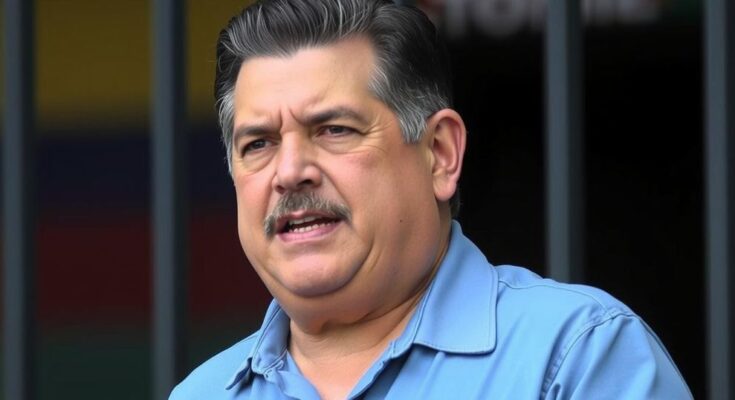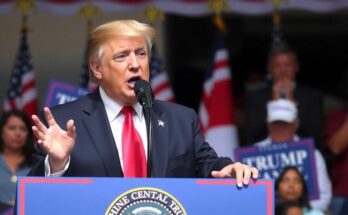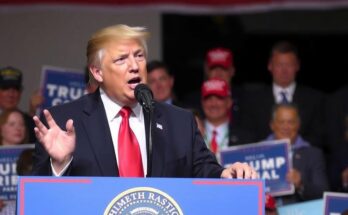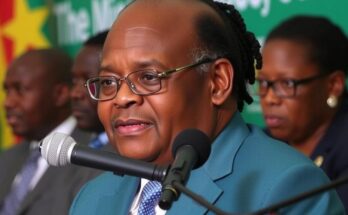Colombia has proposed to manage Argentina’s Embassy in Caracas, where six aides of opposition leader María Corina Machado are currently sheltered. This initiative follows communication with Venezuela’s government to ensure their safe passage, contingent on the release of certain political prisoners. Amid ongoing police harassment and political strife, Colombia’s step underscores its growing involvement in Venezuela’s political crisis, particularly after Maduro’s controversial re-election.
Colombia is taking significant diplomatic steps by offering to assume custody of Argentina’s Embassy in Caracas, where six aides affiliated with opposition leader María Corina Machado have sought refuge since March. Foreign Affairs Minister Luis Gilberto Murillo announced this initiative following talks in San Andrés, signifying direct communication with Venezuela’s government to facilitate the safe passage of these officials, who face threats of detention for their political activities.
Recent discussions revealed that Venezuela might be amenable to cooperation if Colombia persuades Argentina to release an unnamed individual tied to the Venezuelan administration and helps secure the release of Jorge Glas, Ecuador’s former vice-president, who was arrested in April during a controversial operation at the Mexican Embassy in Quito. Venezuelan President Nicolás Maduro condemned this raid, labeling it an act of “barbarism” by Ecuadorian President Daniel Noboa, stating it bolstered right-wing entities in Venezuela.
As the political climate continues to deteriorate, this engagement underscores Colombia’s escalating role in mediating Venezuela’s ongoing political crisis, particularly following Maduro’s assertion of power amidst accusations of election irregularities. The six aides have been confined within the Argentine Embassy, facing potential charges of orchestrating terroristic activities on behalf of Machado and her alternative candidate, Edmundo González Urrutia. Amidst dwindling supplies, these opposition members report ongoing harassment from Venezuelan police, who have restricted essential utilities and access to provisions, actions criticized by the United Nations for contravening international law.
The political discord escalated further as both Maduro and González, currently in Spain, claim intentions to be inaugurated as Venezuela’s president when the new term commences on January 10. In pursuit of resolution, Murillo has traveled to both Brazil and Ecuador following directives from President Gustavo Petro. Brazil has declared that it will retain control of the Embassy until Argentina designates a successor government entity, with Argentina asserting that Maduro’s regime fails to uphold fundamental human rights. Despite previously tense relations, recent dialogues have resumed between Venezuela and Brazil, although President Luiz Inácio Lula da Silva has yet to recognize Maduro’s re-election, urging for transparency in the voting process.
The context of this article revolves around the escalating political tensions in Venezuela, particularly following the controversial re-election of President Nicolás Maduro. Amid allegations of voter suppression and electoral fraud, opposition figures such as María Corina Machado have sought refuge in diplomatic missions, fearing retribution from the government. Colombia, under President Gustavo Petro’s leadership, is attempting to mediate the situation by offering safe passage for opposition aides while navigating complex diplomatic relations with neighboring nations such as Argentina and Ecuador. This situation perplexingly intertwines local politics with international diplomatic relations and human rights advocacy.
In summary, Colombia’s offer to take custody of the Argentine Embassy represents a significant diplomatic maneuver amid Venezuela’s tumultuous political landscape. The safety of opposition leaders remains precarious, compounded by governmental intimidation. As Colombia engages in negotiations with Venezuela, the implications of international diplomacy and human rights violations take center stage, particularly regarding the treatment of political dissenters and the geopolitical dynamics in South America. The forthcoming presidential inauguration on January 10 may further exacerbate these tensions.
Original Source: www.batimes.com.ar




